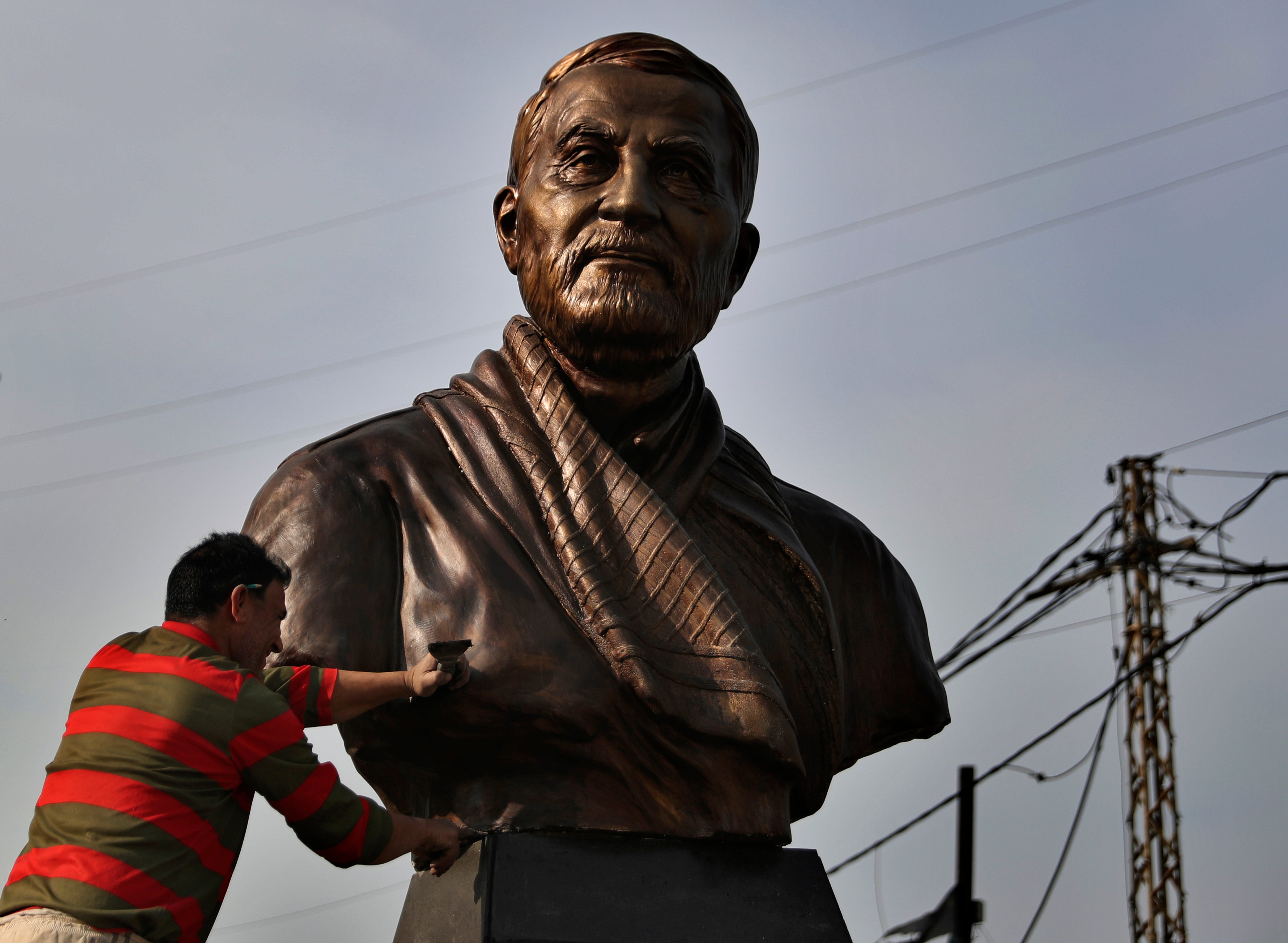In Beirut, a bronze bust of Iran general sparks controversy
The unveiling of a large statue in Beirut of the Iranian commander killed by the U.S. last year has sparked indignation among many in Lebanon

Your support helps us to tell the story
From reproductive rights to climate change to Big Tech, The Independent is on the ground when the story is developing. Whether it's investigating the financials of Elon Musk's pro-Trump PAC or producing our latest documentary, 'The A Word', which shines a light on the American women fighting for reproductive rights, we know how important it is to parse out the facts from the messaging.
At such a critical moment in US history, we need reporters on the ground. Your donation allows us to keep sending journalists to speak to both sides of the story.
The Independent is trusted by Americans across the entire political spectrum. And unlike many other quality news outlets, we choose not to lock Americans out of our reporting and analysis with paywalls. We believe quality journalism should be available to everyone, paid for by those who can afford it.
Your support makes all the difference.The unveiling of a large statue in Beirut of an Iranian commander killed by the U.S. last year has sparked indignation among many in Lebanon — the latest manifestation of a growing schism between supporters and opponents of the Iran-backed group Hezbollah
The bronze bust of Gen. Qassem Soleimani was erected Tuesday by the Ghobeiry municipality in a Hezbollah stronghold near Beirut's airport to commemorate the slain general's supportive role in Lebanon's wars with Israel. Soleimani, the architect of Iran’s proxy militias in the Middle East, was killed in a U.S. drone strike near Baghdad airport a year ago.
Many Lebanese, mostly critics of Hezbollah, took to social media to lambast the celebration of a foreign military leader in Lebanon's capital. “Occupied Beirut,” tweeted one Lebanese, Amin Abou Mansour, who posted it with the hashtag #BeirutFree_IranOut.
Others lamented what they described as the cultural hegemony of the militant Hezbollah and its ally, Iran. Wael Attallah, a Lebanese Canadian, tweeted: “This is a cultural aggression being imposed on Lebanon. Hundreds of thousands of Lebanese today feel violated and powerless. The Schism is getting wider day by day, little by little.”
One Lebanese media personality said she received death threats after her criticism on social media of the new statue.
The criticism has triggered a backlash from supporters, who started a Twitter storm with the hashtag: #Soleimani-is-one-of-us.
The killing of Soleimani and a top Iraqi militia leader last year at Baghdad’s airport significantly ratcheted up tensions in the region, sparking outrage among their supporters and bringing Iran and its allies and the U.S. close to an all-out conflict. Iraq and Hezbollah, Iran’s closest allies in the region, have called for the expulsion of U.S. troops from the region and threatened to retaliate for the killing of the two commanders.
The fallout over the Soleimani statue reflected deepening divisions in the small country that has become increasingly aligned with Iran, alienating traditional Arab and Western backers.
A report in the online site Al-Modon called the bust in southern Beirut a “symbol of (an) Iranian mandate” in Lebanon that replaces symbols of a bygone era when pictures or statues of Egyptian leader Gamal Abdul-Nasser and Syrian President Hafez Assad were prevalent.
The bronze bust about 3 meters (10 feet) high is located in a roundabout on a street named for the Iranian general and is linked to a highway named after Iran's Supreme Leader Ayatollah Khomeini — a reflection of growing Iranian influence in Lebanon.
Giant posters of Soleimani were also installed along streets and in neighborhoods allied with Hezbollah, in some instances sparking angry reactions from locals.
In the eastern Bekaa highway to the Brital area, unidentified men torched a billboard of Soleimani on Sunday, according to the local LBC TV channel.
The following day, other portraits of Soleimani were burned north of Beirut in Nahr al-Kalb by men who brandished the portraits of Christian leader Bachir Gemayl, who was assassinated in 1982.
Subscribe to Independent Premium to bookmark this article
Want to bookmark your favourite articles and stories to read or reference later? Start your Independent Premium subscription today.